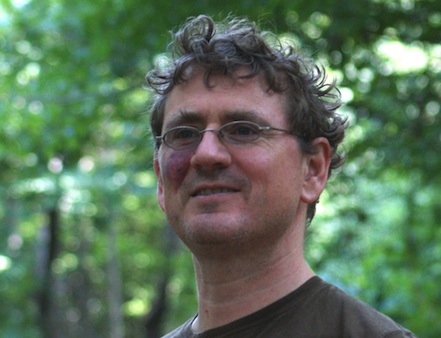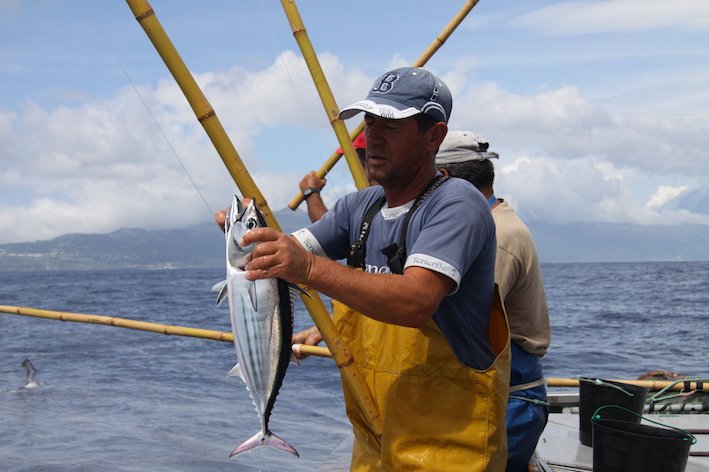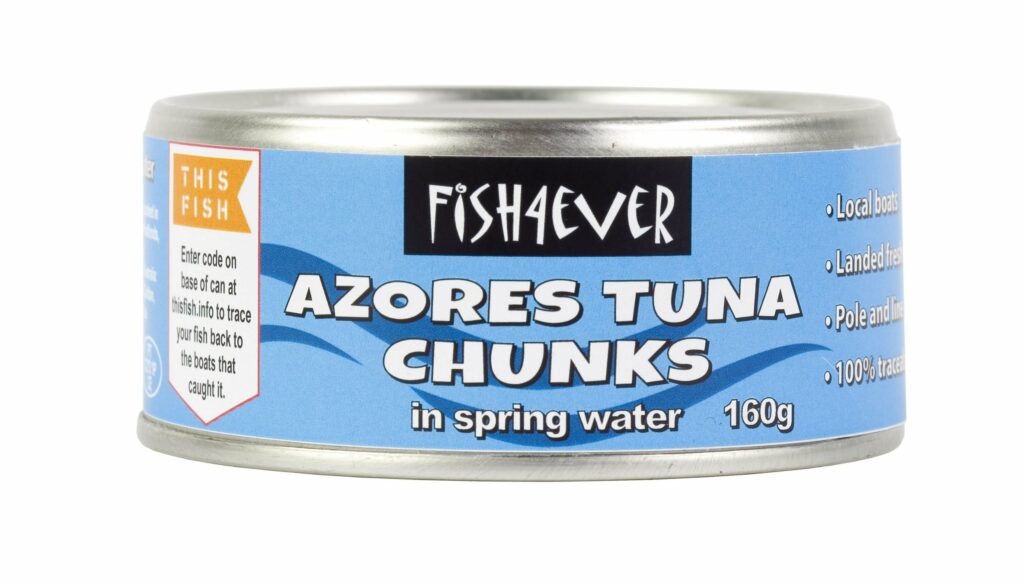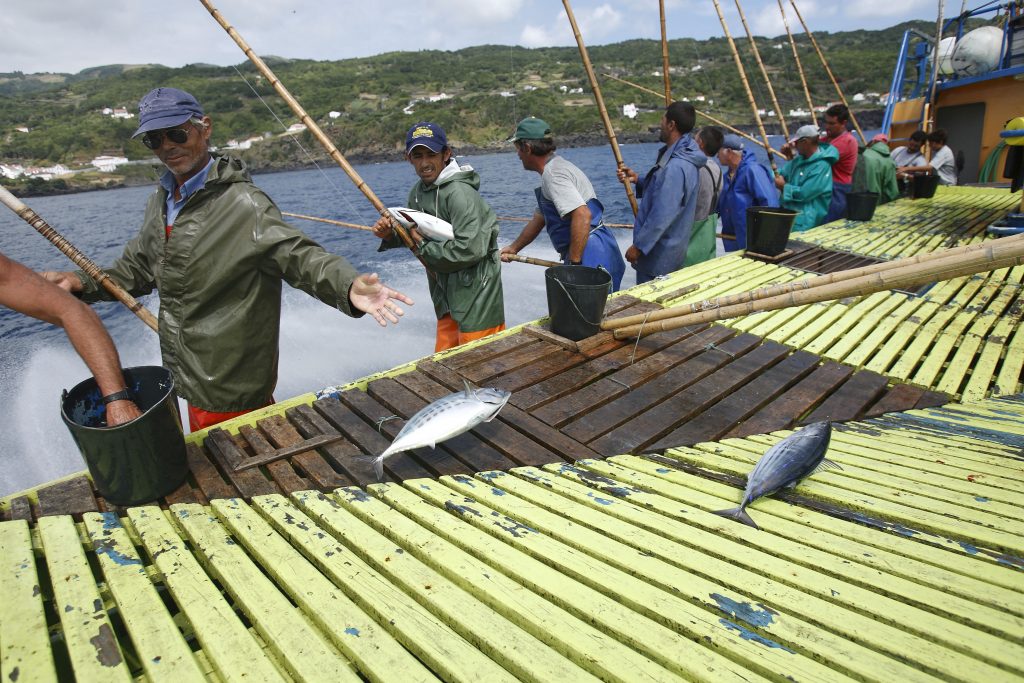The best BBQ Delivery Boxes in the UK from small sustainable British Farms

Charles Redfern is founder of Fish4Ever, a canned fish company. For more than 20 years, Fish4Ever has brought the idea of organic values to fish sustainability.
“It’s no secret that the new Netflix documentary Seaspiracy, about the commercial fishing industry, is aimed to shock.
And shocking, the stats unquestionably are:
Today, around 2.7 trillion fish are caught every year, up to five million killed every minute, by commercial fishing fleets. The largest trawl nets are so large they could swallow whole cathedrals and they devastate 3.9 billion acres of seafloor, annually. Fishing in this way leads to huge amount of bycatch: 11,000-30,000 sharks, alone, are killed every hour. Human labour comes cheap, modern slavery is endemic and almost 24,000 workers die – or are killed – every year.
And this is barely the tip of the iceberg. Seaspiracy is a movie of unrelenting horror that ends with a blood bath of epic proportions in the Faroe Islands, like a battle scene out of Vikings.
But, we’ll come to that later.
Sadly, these are not new stories. Charles Clover’s 2009 film the End of the Line highlights many of these issues. The dolphin slaughter in Japan was exposed in another 2009 documentary: The Cove. The sections on illegal fishing and slave labour, from shrimps in Thailand to artisan fishermen off the coast of West Africa, come straight out of the video and advocacy work of the Environmental Justice Foundation (EJF).
So, how is this allowed to continue? The reality, as the film explores, is that the industry is propped up by $35 billion of government subsidies and ‘sustainability’ labels aren’t worth the paper they’re printed on.

Seaspiracy: the good
On many issues, Fish4Ever is aligned with Seaspiracy.
They lambast the dolphin friendly logo: 20 years ago we pulled the logo off our tins because we knew it was a sham. This was at considerable damage to ourselves: ‘why are you not dolphin friendly!?’ no-doubt a reason time-poor consumers picked other brands on the supermarket shelves.
We were the first canned fish company to sign up to The Marine Stewardship Council (MSC), the blue tick supported by retailers and brands the world over. We then became probably the only brand to leave when it became clear to us that: “they’re not looking at solving the problem, they’re looking at exploiting the problem,” as the film puts it.
We’ve spent futile years fighting what we regard as the deliberate misinformation and greenwashing the MSC represents. I was even expert witness at the UK House of Parliament special inquiry on the marine environment against the MSC.
Around 80% of MSC’s almost £30m income comes from licensing brands. So, our principles, on this point too, have come at a huge disadvantage to our business, when consumers are advised time-and-time again that this is the label to look for.
Tuna features hugely in the film. We’re a sustainable tuna expert.

Seaspiracy: the bias
Considering our experience and advocacy work, I would have thought we would have been well placed to comment or to film ‘the other side’ to this story, and feature some of the small-scale fishers we work with at Fish4Ever.
But then, the documentary crescendos with a finale of a whale kill and the film lingers almost gratuitously on these horrifying scenes like a priest in a cassock wagging his fingers at his congregation.
And then it becomes clear the film’s purpose is to argue that there is no such thing as sustainable fishing; all fishing is bad and there are no distinctions.
The issue I have with Seaspiracy is that it’s not transparent about why it was produced in the first place.
It’s not a balanced documentary showing all sides of the fishing industry and allowing the viewers to make up their minds. This is a vegan film, produced by vegan activists and funded by Dale Vince, a vegan multi-millionaire.
Conveniently, Seaspiracy concludes with a little advertising section for a fish substitutes company. A company that potentially makes its products from genetically modified soya and an endless list of additives, processing aids, fillers and flavouring.
I wonder who is also invested in that?
Seaspiracy: the untold story
If I wanted to make an anti-food-substitutes documentary, Seaspiracy’s end point could be my starting point. I could dissect the ingredients of these industrial food products. My camera could slowly pan a vast field of mono-cropped soya or corn – no insects, or birds, no people in the fields, everything controlled by vast monolithic companies.
I could focus on the unseen and exploited Latin American workers of Southern California – illegal, undocumented, abused. This would lead me to my next frames in India where the suicide rates of indebted small-holding farmers are a much-too familiar story. In Africa, we could show how corporations are seizing huge slabs of land in a new form of colonialism to grow (vegan) crops for exports.
Then, I could move on to various corporate headquarters where the GM giants like Monsanto or Syngenta, or makers of fructose-filled coloured cereals, would refuse me an interview and push the camera back in my face. I could reveal how all of this is wrapped-up in a system of government subsidies, kickbacks, ‘sustainability’ claims and networks of power and control.
But, this wouldn’t even begin to tell the whole story, and it would ignore all the indisputable benefits of us moving to a more plant-based diet.
My point is that all food categories are complicated and ethically conflicted and I would have liked Seaspiracy to bring some nuance to this conversation.
The Seaspiracy alternative ending: genuinely sustainable fishing
I know there’s another solution to the “don’t eat fish” message of Seaspiracy and that is to “eat well-fished fish”.
It is undoubtedly harder to find. It definitely demands more work on the consumer’s side and asks them to cut through the bullshit of the sustainability industry.

But, I know it exists because I’ve spent the past 20 years ensuring our Fish4Ever brand proves it’s possible. This is despite the fact the odds were stacked against us. This is even though profit margins aren’t as big as they could be, because we prioritise the true cost. As such, we can be confident in the assertions that our fish comes with:
- No bycatch
- No impact on the sea floor
- No endangered species caught or affected: dolphins, whales, sharks – are all untouched by us
- No illegal fishing
- No slave labour, no human rights abuses: we support local boats and fishing communities
- No dodgy ingredients or chemicals – and quite a lot of organic ones
I desperately need ethical consumers to back our products. The small guy on the small boat trying to make an honest living is already at a massive disadvantage. If the ethical consumer drops out, all that’s left is non-ethical consumers. They’ll carry on buying supposedly ‘dolphin friendly’ tuna and our products will disappear.
In the scheme of things our business really doesn’t matter. But, what it stands for and the small-scale fishers it supports, do.”
Charles Redfern is founder of Fish4Ever and Organico; shop at organicorealfoods.com


